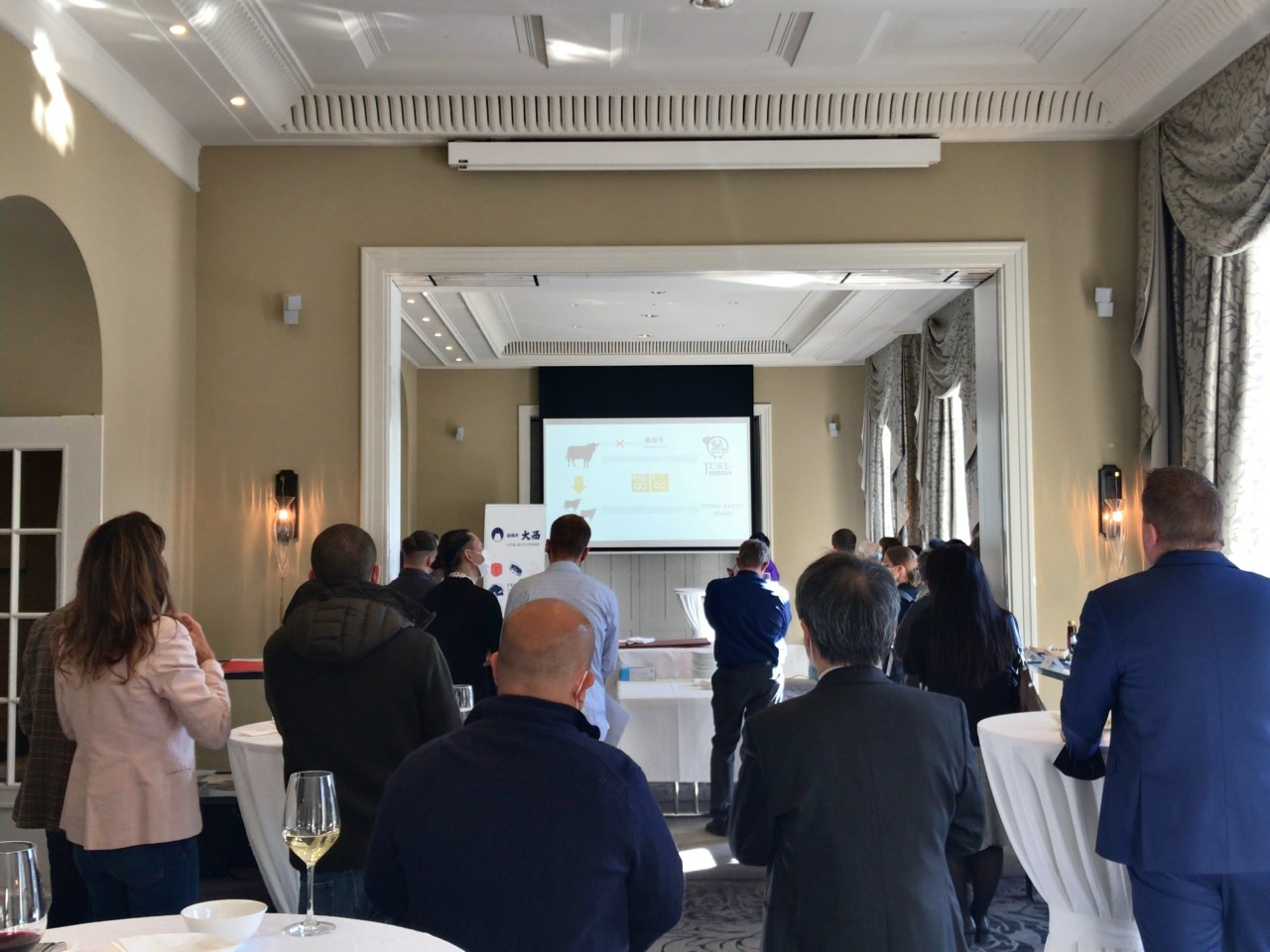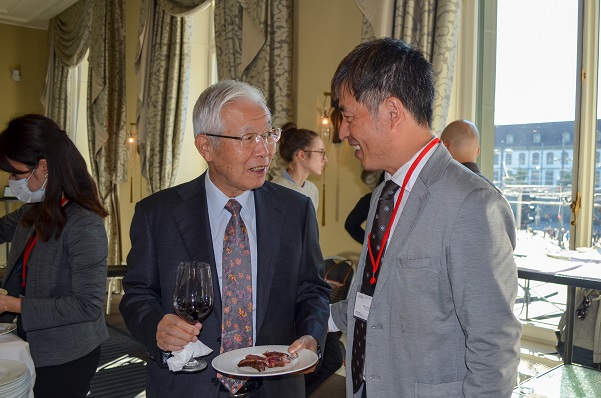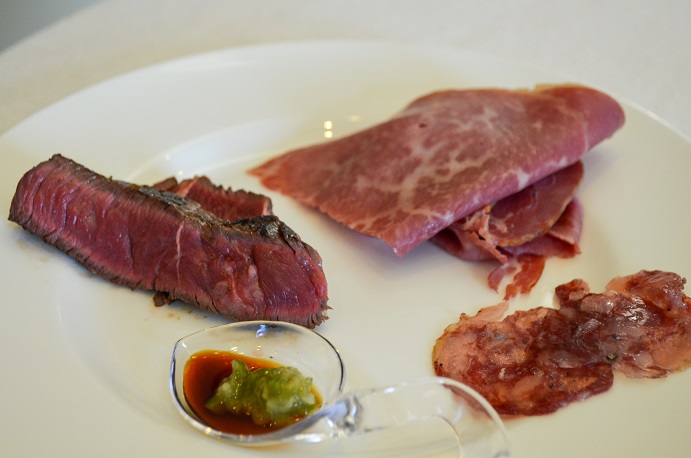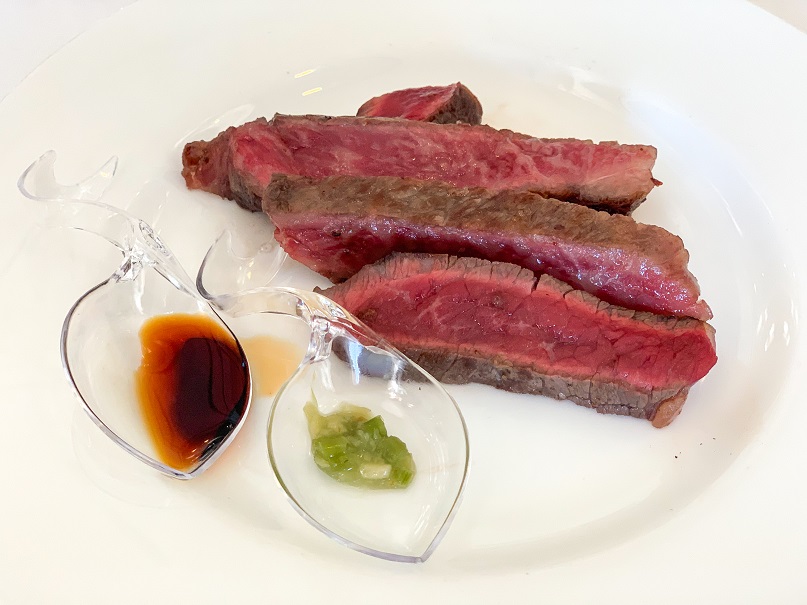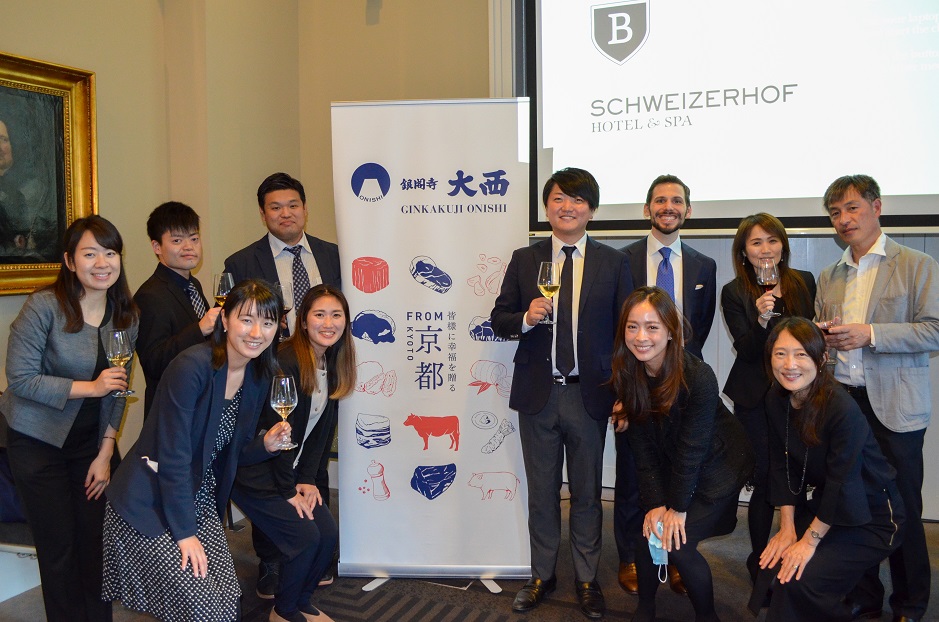Sustainable Wagyu Tasting Event
Oct 14, 2021
In collaboration with JFOODO, Japan’s overseas food products promotion center, and the Embassy of Japan in Switzerland, JETRO Geneva has organized a Sustainable Wagyu promotion event for professionals at the Hotel Schweizerhof in Bern.
Venue
October 14, 14.00 - 17.00
Hotel Schweizerhof, Bern
The event is hold in English
Registration is mandatory
Summary
Thirty professionals of the meat industry attended the event. People from restaurants, hotels, importers and butchers were curious to learn to taste this particular meat that was brought by two Japanese companies who kindly visited Switzerland on their way back from the trade fair Anuga in Germany.
Press review
The newspapers "The Daily Tohoku" and "Kyodo News" have published an article on the event in Japanese and English respectively. The articles can be read by clicking on the name of the two newspapers.
Ginkakuji Onishi and Jukuho Farm
The company Ginkakuji Onishi is an important meat retailer, distributor, and exporter of wagyu meat located in Kyoto. Ginkakuji Onishi has a trustful relationship with several farms all over Japan. They sell different sorts of wagyu, but for the purpose of the event they focused on their sustainable wagyu called “Juku Program”. Mr. Hideki Onishi, CEO, came along with Ms. Duh and Mr. Goto from the company’s overseas department.
The second company is Jukuho Farm, one of the farms that are part of this Juku program. Jukuho Farm is an exemplary farm able to produce the best quality meat by providing excellent breeding conditions to their cattle. The farm has developed a very efficient breeding program for “mother cows”. The farm is located in Shimane prefecture (south-west of Japan). Mr. Ishitobi, President and CEO and Ms Yamamoto in charge of the insemination program kindly came from Japan.
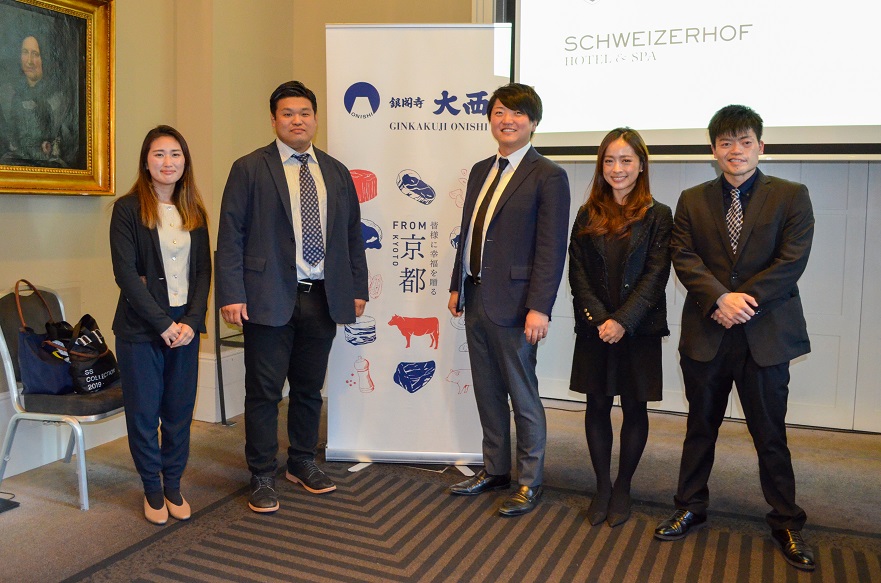
Sustainable Wagyu
Wagyu which literally means “Japanese beef” is a demanding meat to produce. The cattle are breed during two years while some European species are bred during hardly more than six months.
In Japan, the mother cow is traditionally not used for producing wagyu meat. They give birth a couple of time but are called “Useless Beef” once they are too old for reproduction.
“I was shocked to hear them being called useless,” said Mr. Onishi. Those are 100% Japanese black (main breed for wagyu) from which we make the best meat.
They have a lot of potential he added. Therefore, the company started this Juku program. They buy mother cows at auction and send them directly to Juku Farm. Juku Farm has developed a highly efficient feeding program adapted especially for those mother cows that are 7 or 8 years old. Thanks to an efficient feedlot and a stress-free environment, Juku Farm is able to turn those “useless” cows into top quality wagyu beef after a couple of months.
This meat can be called sustainable because it turns a “waste” into food. The UN Sustainable Development Goal 12 is to achieve responsible consumption and production. Make the most of the potential food we have certainly contributes to it. It is also important to understand that wagyu is rare. Not only because it takes over two years to breed cattle, but also because the number of farmers is decreasing in Japan. It is not a meat that can be mass-produced.
In Switzerland animal welfare is very important. This is also true in Japan. “Many people ask me if we give them beer” said Mr. Onishi during his presentation. No, but beer wheat that is good for them he answered. Beer may be exaggerated but the good care and dedication of the farmers is true. The stress-free environment is an important part of process. Farms are at human size. Pictures and videos show clean environment and beefs that are happy to see the farmers.

Top quality and taste
One challenge of this sustainable wagyu is to change the way people see this meat. This meat is by no means a second-grade meat. Jukuho Farm is able to produce the best quality including A3 to A5 (A5 being the best quality on the Japanese scale). During the tasting, everyone was impressed by the quality and deep umami flavor. Several people used to excellent wagyu meat said they did not think it could be so good.
In fact, as explained during the seminar, the mother cow has an interesting added value. As said, the average breeding period of ordinary wagyu is 26 to 28 months. For this meat it will be 100 months in average. With the years, the meat ends with a concentrated umami unique taste.
A meat well adapted to the Swiss and European market
In Japan wagyu is traditionally eaten in smaller portions and using thinner cuts than the way we eat meat in Switzerland. Mr. Onishi brought on purpose a meat that was not too high on marbling scale (going from 1 to 13). A A5-13 meat will be exceptional for many Japanese recipe but may be too fatty to be enjoyed in large quantity such as for a steak explained Mr. Onishi. Therefore, for this kind of cooking, a lower marbling of fat between 6 to 9 is recommended.
Mr. Onishi emphasized that different cuts can be suitable for the Swiss market. Consumers often go for the first cut while second cuts are perfectly suitable and cheaper.
Ginkakuji Onishi is also inspired by the European market and is adapting some product to it. At the end of the event participants could try Wagyu ham and salami Ginkakuji Onishi is preparing in its store in Milano. Wagyu’s natural high percentage of intra-muscular fat makes it perfectly adapted to those products.
